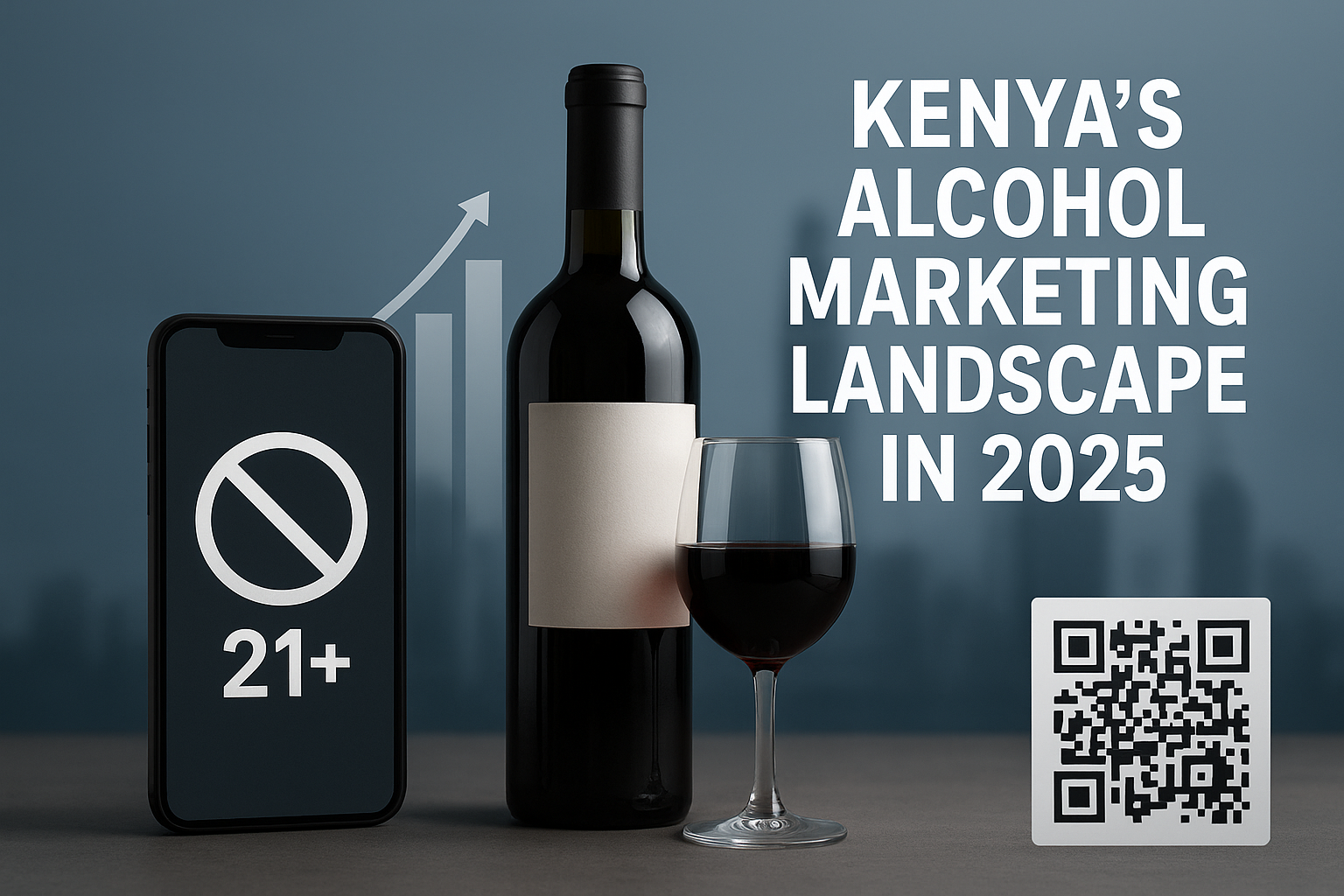Is This the End of Alcohol Ads in Kenya? What 2025 Rules Mean for Your Brand
🚨 Kenya’s alcohol industry is in shock. With the 2025 NACADA regulations banning online ads, influencers, and even deliveries, the rules of the game have been flipped overnight. But here’s the twist: while most brands fear collapse, the bold ones are uncovering hidden opportunities to dominate the market. Could this crackdown actually spark the biggest alcohol marketing revolution Kenya has ever seen?

Kenya Alcohol Laws 2025: What Every Kenyan Must Know
🚨 Big changes are brewing in Kenya’s drinking scene. From raising the legal drinking age to potentially banning online sales and home deliveries, the government’s new alcohol policy proposals could transform how you buy, sell, and enjoy your favorite drinks. Whether you’re a casual consumer, a bar owner, or just curious about the future of alcohol in Kenya, these reforms affect all of us. Here’s the truth about what’s coming — and what it means for you.
Popular Alcoholic Beverages in Kenya – Top Local & Imported Drinks You Must Try
Kenya’s drinking scene is hotter than ever in 2025! From the legendary Tusker Lager to bold new craft beers, smooth Johnnie Walker Black Label, and trendy ciders, the Kenyan alcohol market is overflowing with flavour. Whether you’re after local brews that carry decades of tradition or imported favourites making waves in Nairobi’s nightlife, our data-driven guide reveals the best drinks in Kenya right now—plus the insider trends shaping what’s in your glass next.
Alcohol Distribution in Kenya: How to Start a Business & Make Profits in Kenya
Want to tap into Kenya’s booming alcohol market and build a profitable wholesale or retail business? Starting an alcohol distribution business in Kenya is one of the most lucrative ventures—if you understand the legal, logistical, and market requirements. This comprehensive guide walks you through every step: from licensing and sourcing to building supplier relationships and navigating KRA regulations. Whether you're launching a delivery service, bar, or supply chain operation, you'll find practical insights here to grow sustainably and profitably.
Alcohol Business in Kenya: What KRA and Government Laws You Must Follow
Running an alcohol business in Kenya isn’t just about stocking shelves or delivering drinks — it’s about staying compliant. From KRA requirements to licensing, taxes, and county permits, the alcohol industry is tightly regulated. If you’re thinking of launching or growing a liquor store, bar, or online alcohol delivery service, you must understand the key legal and tax obligations that affect your operations. This guide breaks down everything you need to know — from how to register with the Kenya Revenue Authority (KRA) to staying compliant with national and county alcohol laws.
Avoid shutdowns, penalties, or legal drama. Learn how to set up and run your alcohol business in Kenya the right way — legally and profitably.
Buy Alcohol Online in Kenya – Trusted Delivery of Drinks, Vapes & Gifts | MyBooze
How to Start and Grow a Profitable Wines and Spirits Business in Kenya
Thinking of starting a wines and spirits shop in Kenya, but unsure where to begin?
You're not alone. With Kenya's alcohol market shifting toward premium products, e-commerce integration, and stricter licensing laws, aspiring entrepreneurs face both opportunity and complexity. Whether you're eyeing a retail outlet in Nairobi or planning to sell alcohol online, this guide will walk you through every essential step—from licensing and sourcing to marketing and compliance.
How to Find the Best Alcohol Distributors in Kenya and Unlock Top Wholesale Prices for Your Bar or Liquor Store
Running a successful alcohol business in Kenya starts with one crucial decision — choosing the right distributor.
With ever-changing KRA regulations, rising import costs, and fierce competition in the liquor space, partnering with a reliable and cost-effective alcohol distributor is no longer optional — it’s essential. Whether you're managing a liquor store in Nairobi or operating a hotel bar in Mombasa, knowing where to buy alcohol wholesale in Kenya and how to negotiate the best deals can make or break your margins. In this guide, we walk you through how to identify top alcohol distributors, stay compliant with government regulations, and secure the best pricing — all while leveraging online platforms like MyBooze to streamline procurement and inventory.
